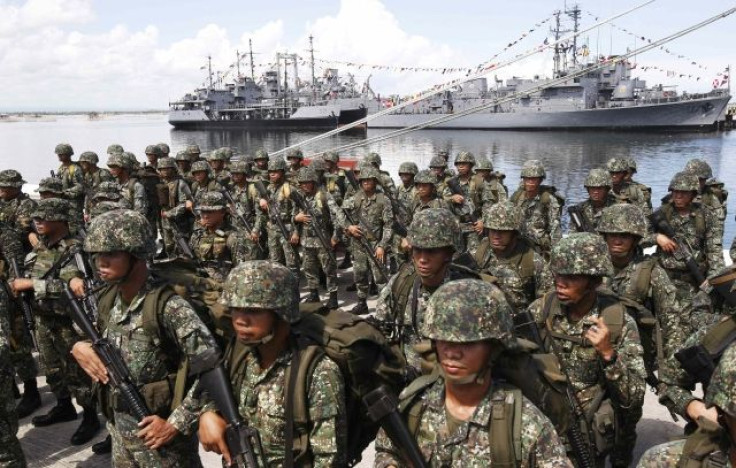Philippines Military Offensive Against Abu Sayyaf Militants Kills Seven Soldiers, Five Militants; Scores Injured

At least, seven Filipino soldiers and five militants were killed on Saturday when the Philippines military launched a raid on the al Qaeda-linked Abu Sayyaf militants, who are suspected to be behind recent kidnappings for ransom in the area.
Nine other soldiers and about 10 militants were injured in the encounter, which took place in the outskirts of the coastal town of Patikul in Sulu province, military spokesman Brig. Gen. Domingo Tutaan said, AP reported.
More troops have since been sent to the area to track down the militants, who are suspected to have been behind the kidnapping of a Filipino marine’s wife last week. The woman was freed unhurt two days after she was abducted, the BBC reported, citing Tutaan.
The militants were led by Julaswan Sawadjaan, an Abu Sayyaf commander blamed for kidnappings of a Jordanian journalist and two European tourists, who are still in the custody of militants, AP reported.
Recently, Abu Sayyaf also abducted two government employees working on a road project in Patikul. The two were freed last week but it was not clear if a ransom was paid, AP reported citing officials.
The Islamist militant outfit is active in the Southern Philippines and Malaysia. Its stated goal is the creation of an independent Islamic state encompassing parts of Southern Thailand, the island of Borneo, the Sulu Archipelago, and Mindanao, areas where Moro Muslims, a minority ethnic group in the Philippines, make up the majority of the local population, as recorded by the U.S. government data.
Abu Sayyaf militants commonly target Filipino and Western Christians in the Southern Philippines. The group orchestrates extortion rackets and kidnapping-for-ransom schemes to fund its operations.
The extent of the group’s cooperation with al-Qaeda is thought to have declined post-9/11. However, Abu Sayyaf members are said to have undergone training in al-Qaeda camps in Afghanistan and some continue to receive operational guidance from al Qaeda-affiliated terrorists hiding in or passing through the Philippines.
© Copyright IBTimes 2024. All rights reserved.












